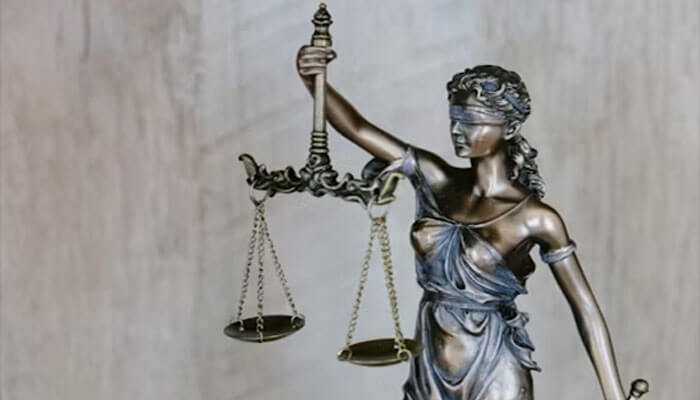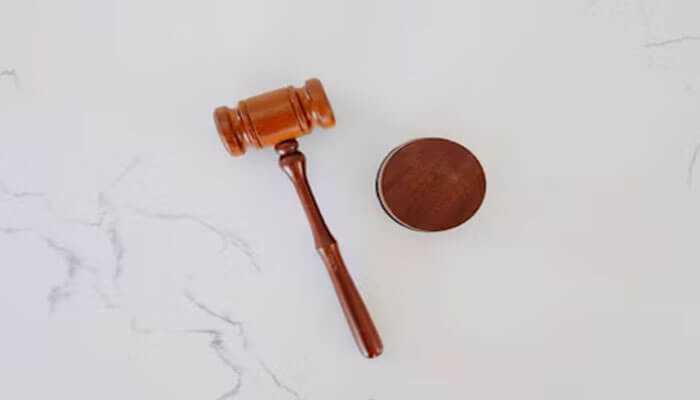Legal Penalties and Fines
In the realm of cheap divorce in California, failing to disclose assets can result in more severe penalties. The court retains the authority to allocate a larger share of the disclosed assets to the innocent spouse as a form of restitution. In severe instances, if the concealment is deemed fraudulent and intentional, it may lead to criminal charges with potential imprisonment. Hiding assets during divorce not only depletes financial resources but also permanently stain reputations, impacting future employment prospects and personal relationships. It is crucial for individuals navigating divorce proceedings to recognize that courts prioritize equity and openness. Any effort to undermine these principles through concealment or deceit is met with stringent consequences that outweigh any perceived immediate advantages.
To responsibly navigate divorce proceedings and mitigate risks associated with legal consequences and penalties for hiding assets during divorce, individuals are strongly encouraged to seek professional legal advice. A qualified attorney can offer guidance on the proper disclosure of assets and ensure compliance with court mandates. Opting for mediation or collaborative divorce processes can provide a cooperative path to achieving fair asset division without resorting to deceptive practices. Taking proactive steps to understand one’s legal responsibilities and the potential consequences of attempting to conceal assets is essential for anyone facing divorce. Maintaining transparency not only preserves personal integrity but also facilitates a smoother transition into post-divorce life, free from the specter of legal repercussions.
Loss of Credibility in Court
1. Engaging in hiding assets during divorce is unequivocally illegal and can result in severe repercussions imposed by the court. These sanctions encompass not only financial penalties but also significant implications for legal standing. For instance, individuals caught concealing assets may be compelled to cover the opposing party’s legal expenses or face heightened scrutiny for the duration of the proceedings. These consequences not only strain financial resources but also exacerbate the emotional and psychological toll of the divorce process.
2. Can you hide assets in a divorce? To mitigate these risks, it’s prudent for individuals to uphold transparency by maintaining clear financial records and openly disclosing information to their legal counsel. Engaging forensic accountants can prove invaluable in intricate cases where asset tracing or valuation is challenging. Such meticulousness guarantees that all stakeholders possess a thorough grasp of the financial situation, thereby averting allegations of concealment that could jeopardize credibility.
Is it illegal to hide money from your spouse? Upholding integrity throughout divorce proceedings emphasizes the adherence to legal and ethical norms. The repercussions of being caught concealing assets underscore the judiciary’s dedication to fairness and transparency. Therefore, individuals must approach these circumstances with honesty and transparency, understanding that any deviation could have lasting consequences beyond immediate legal repercussions. Maintaining open communication with one’s legal counsel and committing to full disclosure are crucial measures to preserve credibility and secure a just outcome in divorce proceedings.
Adverse Division of Remaining Assets
1. Can you hide money in a divorce? The repercussions of asset concealment reach beyond equitable asset distribution. They can impact negotiations concerning spousal support, property division, and even custody arrangements by raising doubts about the credibility and trustworthiness of the party involved. Courts may interpret such actions as reflective of character, potentially shaping decisions with enduring consequences for both parties after the divorce. Therefore, what may appear as a tactic to gain financial advantage can ultimately result in more unfavorable terms compared to if all assets had been openly disclosed from the outset.
2. For those navigating through a divorce, it’s critical to understand that the perceived benefits of hiding assets are vastly outweighed by the potential repercussions. Collaborating with legal counsel to ensure all assets are accounted for and properly declared is not just about adhering to legal requirements; it’s also about securing a fair and just outcome for both parties involved. Professional advisors play a key role in identifying and evaluating complex or overseas assets, ensuring that no stone is left unturned in pursuit of an equitable settlement.
Engaging in transparent disclosure practices fosters an atmosphere of goodwill during negotiations, potentially facilitating more amicable resolutions. In contrast, deceitful tactics poison negotiations with mistrust, often resulting in protracted legal battles that drain emotional and financial resources. Honesty in disclosing assets not only aligns with legal obligations but also contributes to a more constructive negotiation process, ultimately benefiting all parties involved in the divorce proceedings.
Criminal Charges for Fraud or Contempt of Court
Contempt of court is another serious charge that can be levied against someone who disobeys direct court orders or acts in an obstructive manner during the legal process. This includes failing to disclose assets after being ordered to do so, providing false information, or otherwise engaging in conduct that undermines the authority of the court. Penalties for contempt can range from fines to jail time, and they serve as a strong deterrent against non-compliance with court mandates. These charges underscore the judiciary’s power to enforce its decisions and maintain order and fairness within the legal process.
To avoid these grave consequences, it’s crucial for individuals going through a divorce to adhere strictly to all legal requirements for asset disclosure. Engaging in open communication with legal representation and complying with all court orders is essential. Individuals should also consider the long-term ramifications of their actions, not only on their legal standing but on their overall well-being and future relationships. The path through divorce is undoubtedly challenging, but maintaining integrity and transparency throughout the process ensures that one emerges with both financial and personal dignity intact.
“Take This Marriage Thing Seriously – It Has To Last All The Way To The Divorce.”
Complications in Future Legal Proceedings
Attempting to rectify past discretions by disclosing previously hidden assets in later proceedings does not necessarily absolve one of the initial acts of concealment. Instead, it may introduce further scrutiny of all financial declarations made thereafter. Parties involved may find themselves under a microscope for all current and future financial disclosures, with any inconsistency or ambiguity being met with skepticism and potential investigation.
To mitigate against these long-term complications, individuals are encouraged to prioritize transparency from the outset of divorce proceedings. Engaging with legal professionals who can provide comprehensive guidance on proper asset disclosure will help prevent the entanglement of one’s legal affairs in future complications. This proactive approach not only aids in maintaining one’s standing in the eyes of the court but also contributes to a smoother legal process overall, free from the encumbrances that follow attempts to deceive or manipulate the system.
Increased Legal Fees and Costs
1. Courts may impose sanctions directly related to these increased costs, requiring the offending party to cover not just their own escalated legal fees but those of their spouse as well. This punitive measure aims to discourage dishonesty and compensate the non-offending spouse for the unnecessary financial burden caused by the concealment of assets. It’s a stark reminder that any perceived short-term gain from hiding assets is likely to result in far greater financial loss down the line.
2. Engaging in transparent financial disclosure from the outset of divorce proceedings is not only a legal obligation but also a strategy to minimize potential legal costs. By avoiding the need for extensive investigations and contentious court battles over hidden assets, both parties can keep their legal expenses at a more manageable level. This approach not only preserves more of the marital estate for division but also facilitates a faster resolution, allowing both individuals to move forward with their lives sooner.
Honesty in financial disclosures serves as an investment in one’s post-divorce future. Attempting to navigate around this responsibility can lead to a mire of increased legal complications and costs that could have been avoided. For anyone going through a divorce, embracing transparency and working closely with experienced legal counsel offers the best path toward an equitable settlement without the burden of unnecessary financial strain.
Damage to Personal and Professional Reputation
To mitigate these risks, it’s crucial to approach divorce proceedings with a commitment to fairness and transparency. Adopting this stance not only helps preserve one’s legal standing but also safeguards against potential fallouts in personal and professional relationships. It is advisable for individuals to consider the broader implications of their actions during a divorce and strive for resolutions that reflect positively on their character and ethics.
Seeking reconciliation through mediation or collaborative approaches can demonstrate a willingness to resolve conflicts constructively—a quality that resonates well in all spheres of life. By prioritizing ethical behavior over short-term gains, individuals can protect their reputations and ensure that they emerge from the divorce process with their dignity and integrity intact. This strategic approach not only facilitates smoother legal proceedings but also contributes to rebuilding one’s life post-divorce on solid foundations of respectability and trustworthiness.




